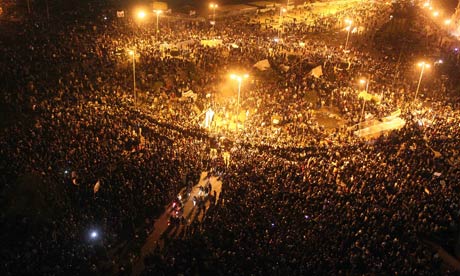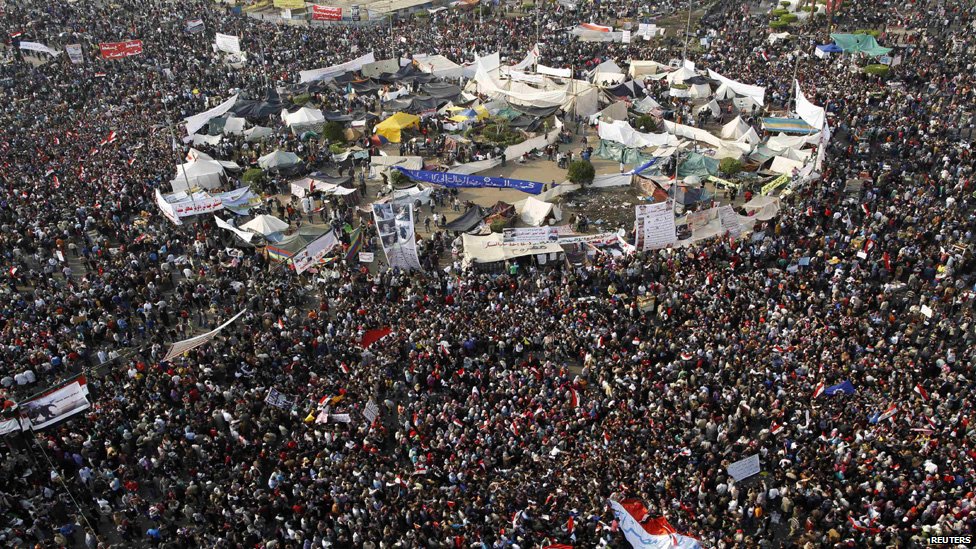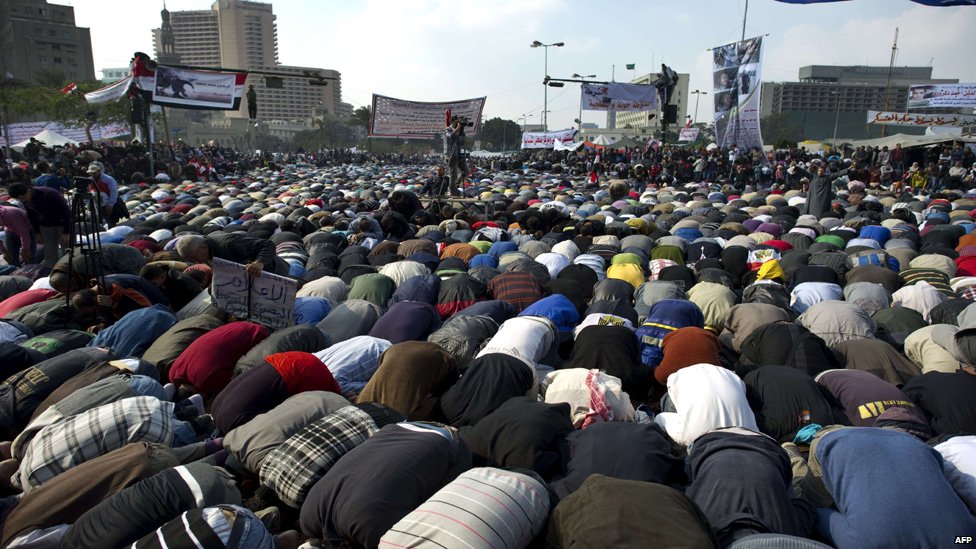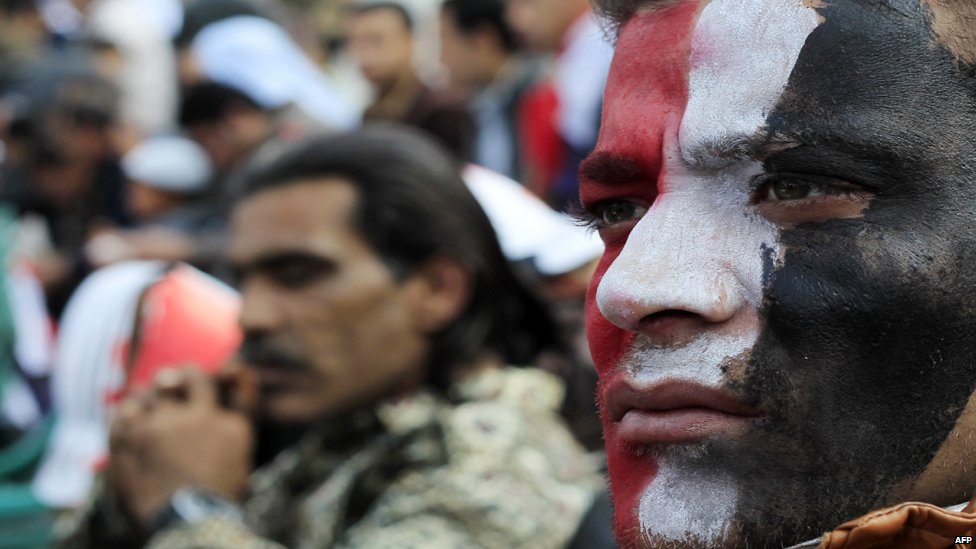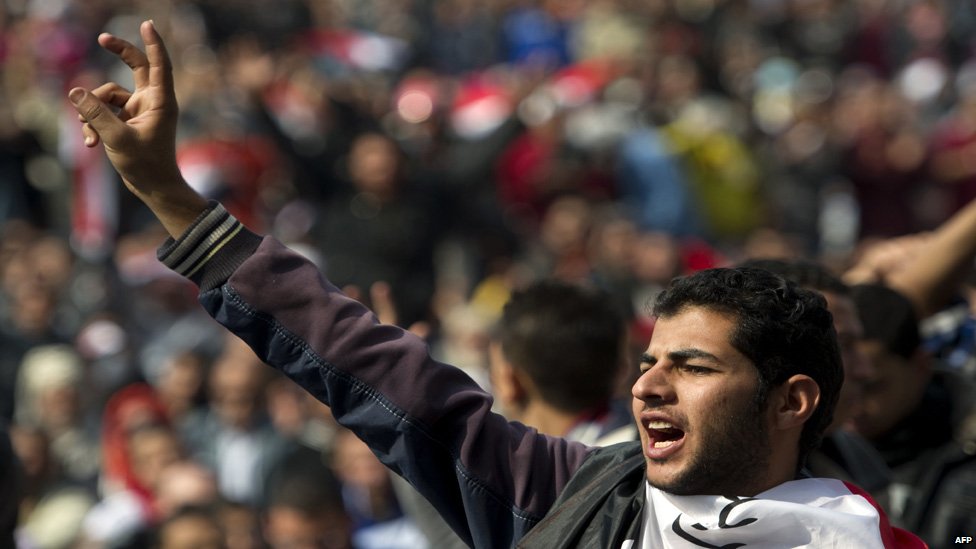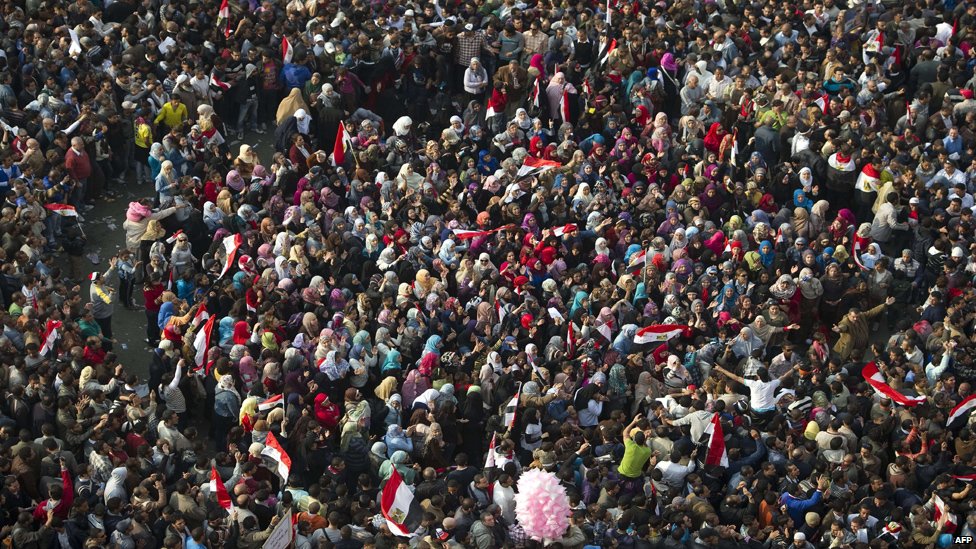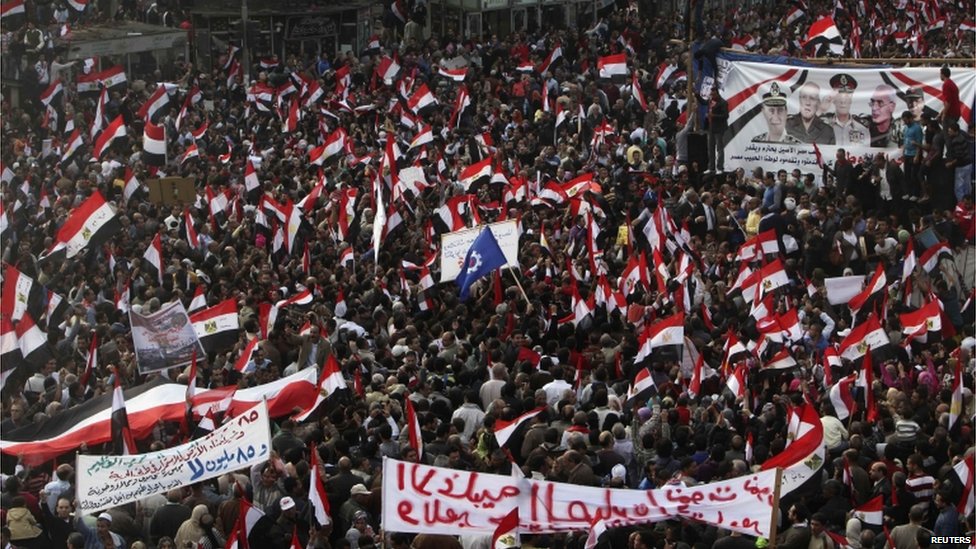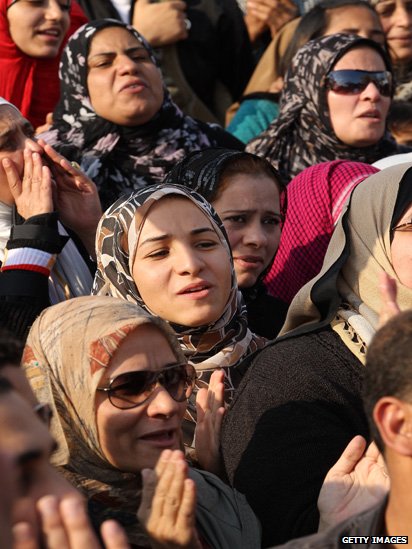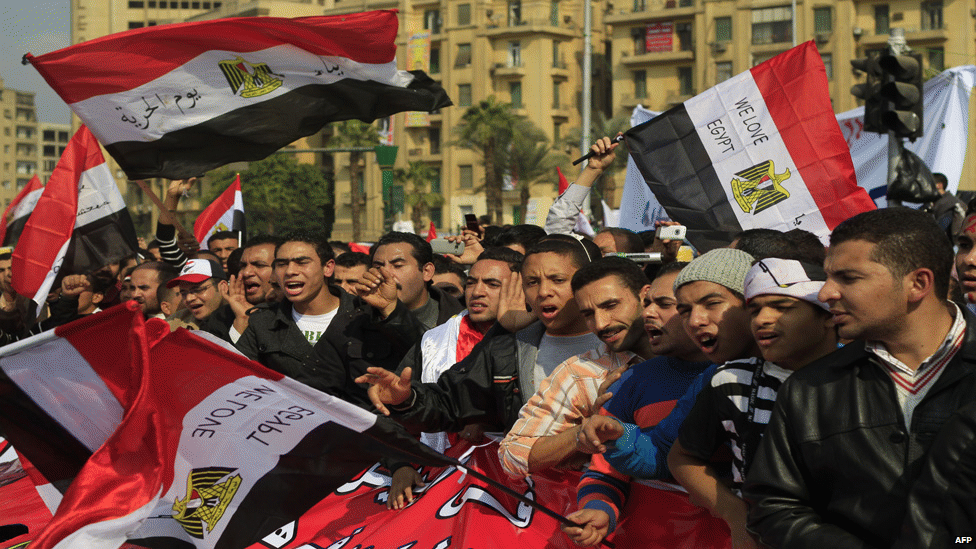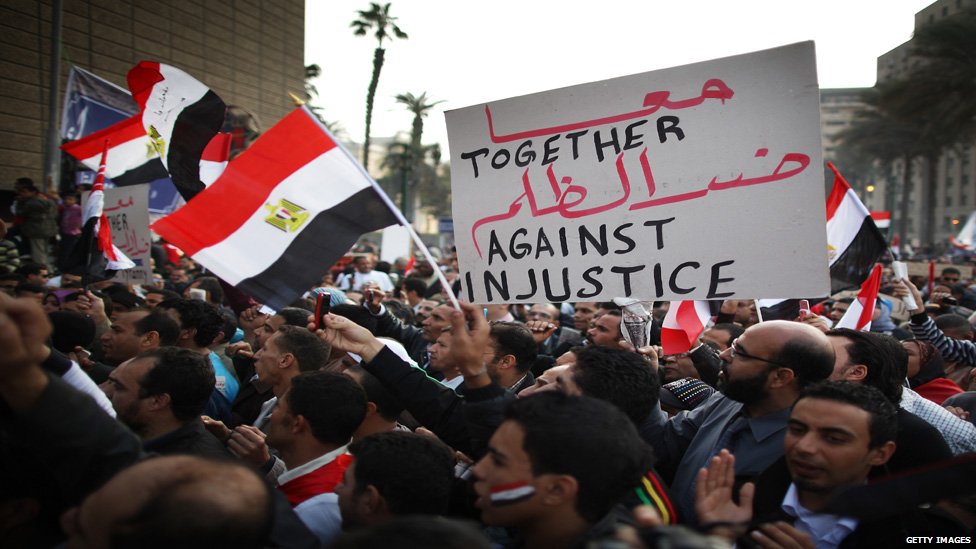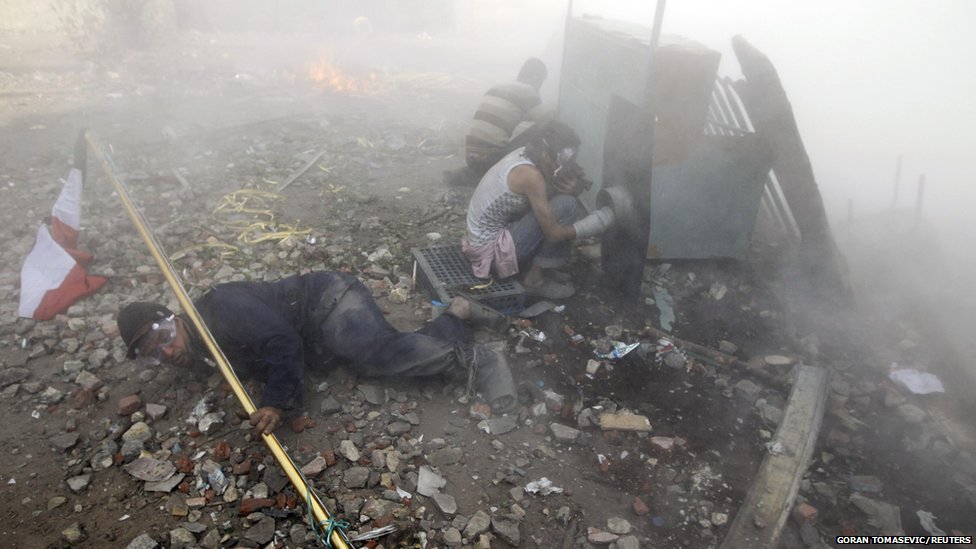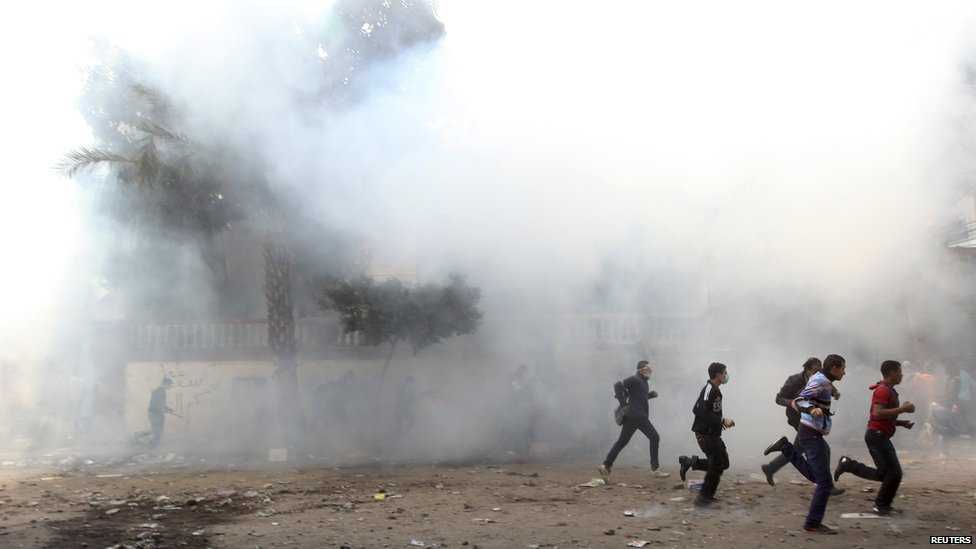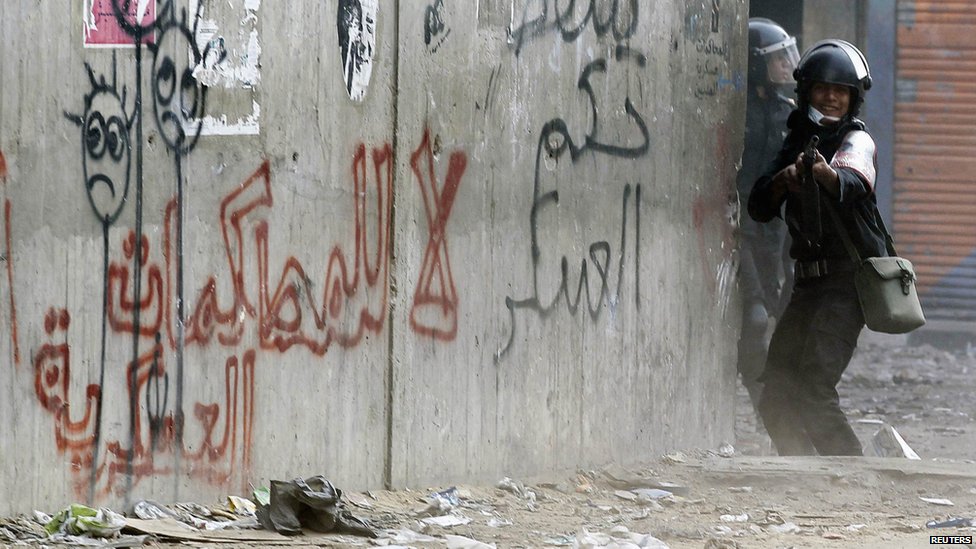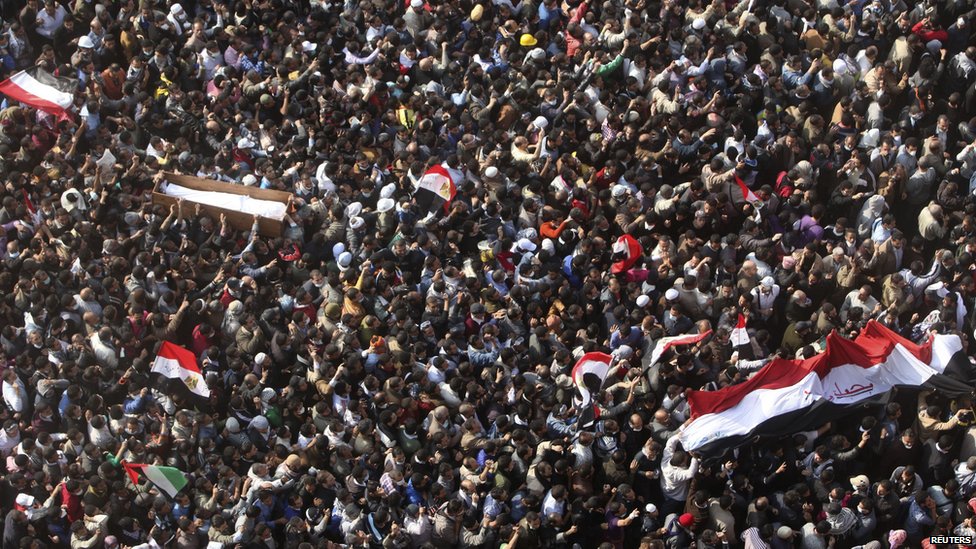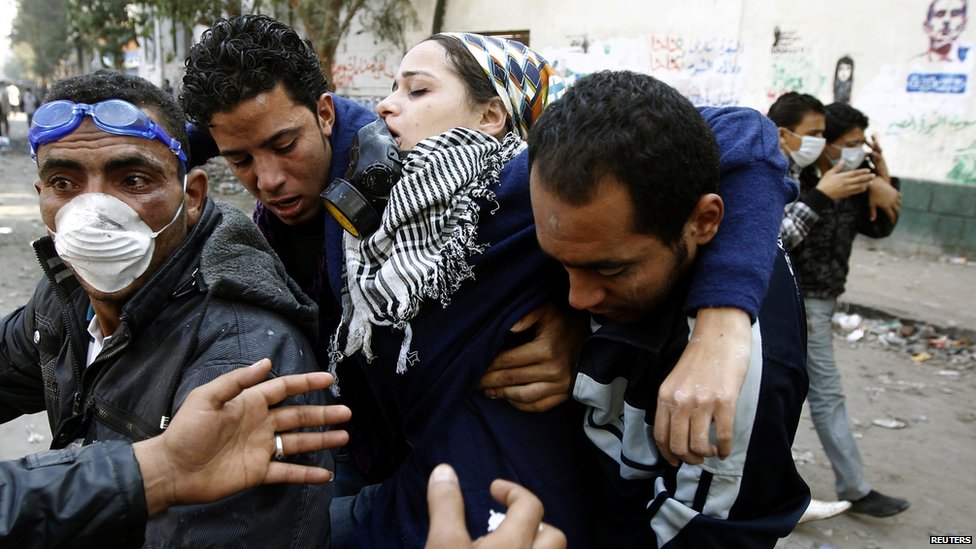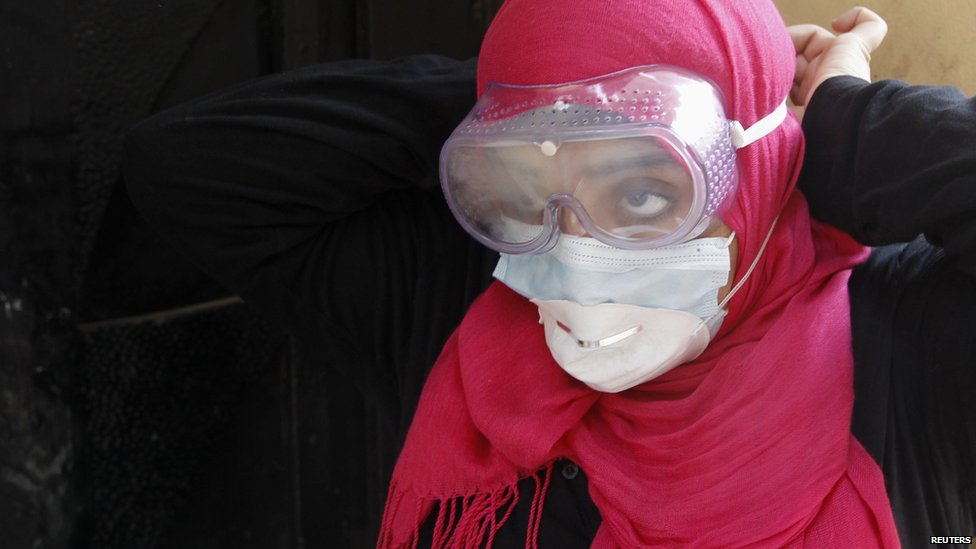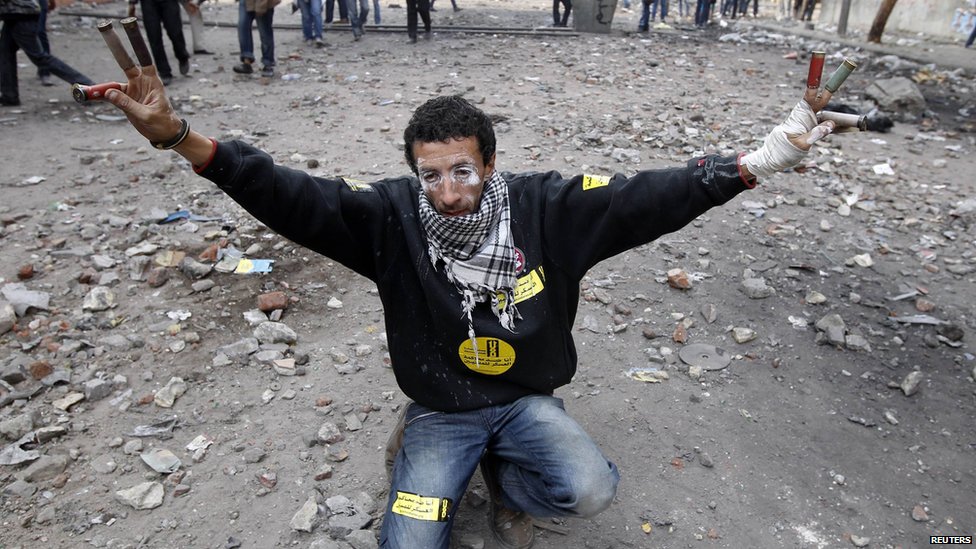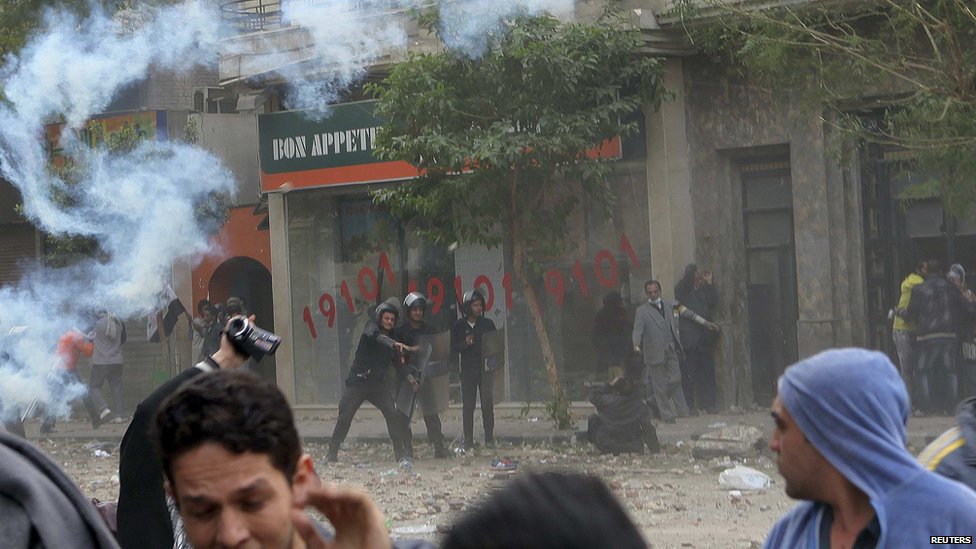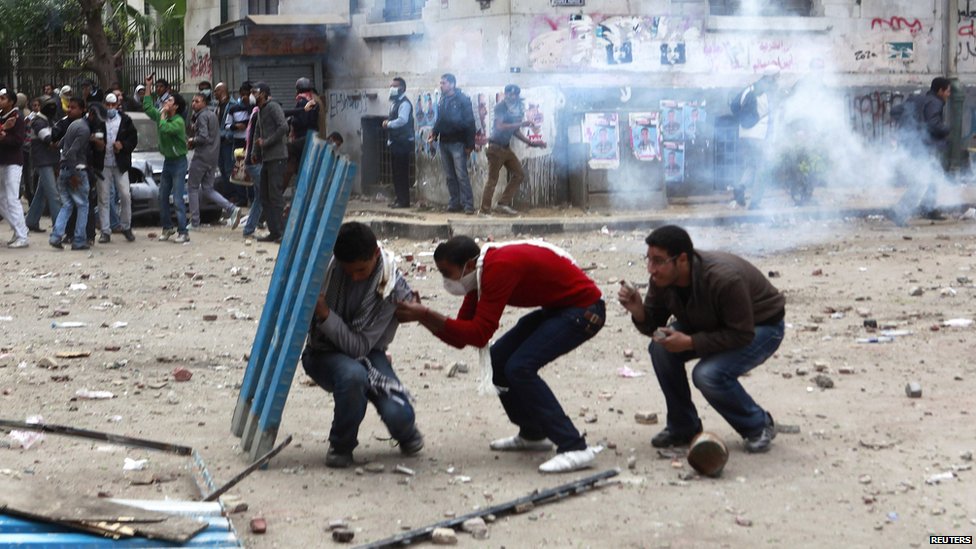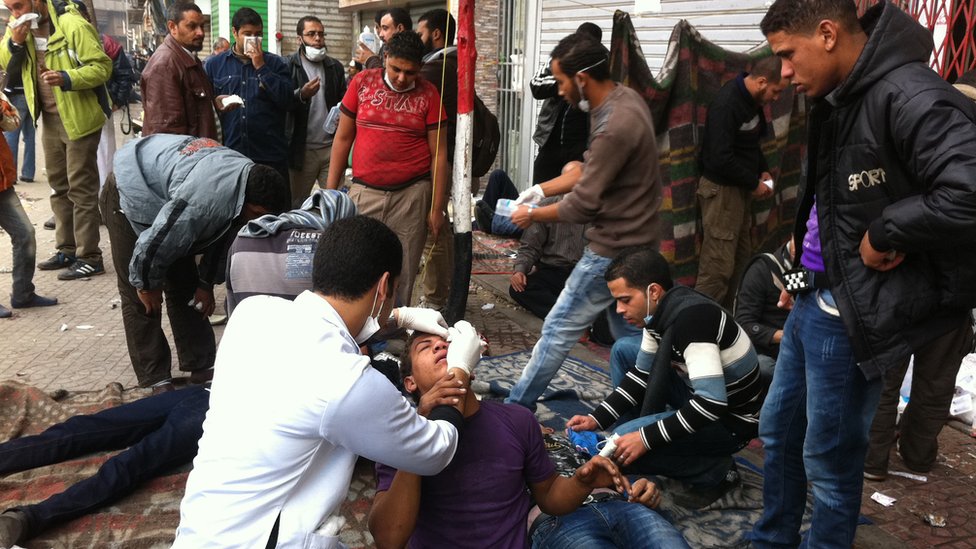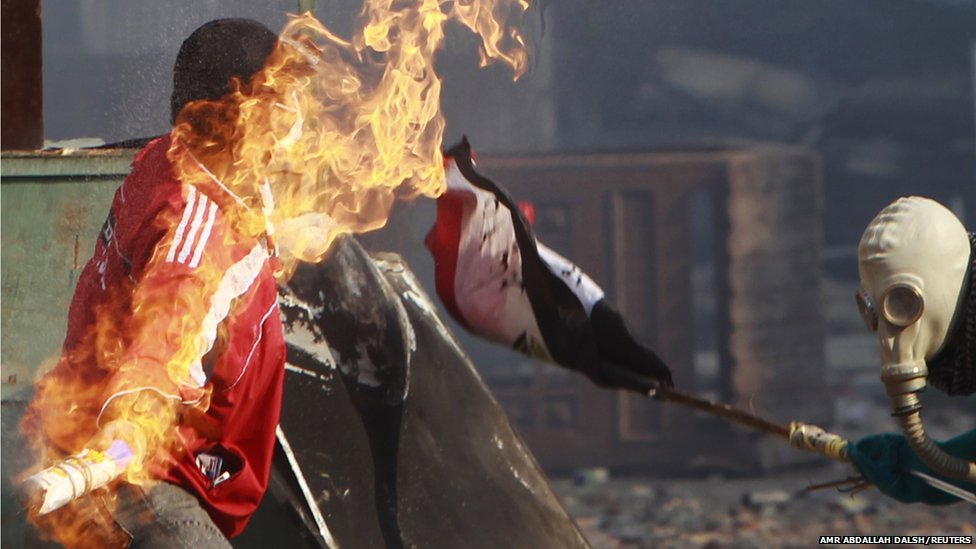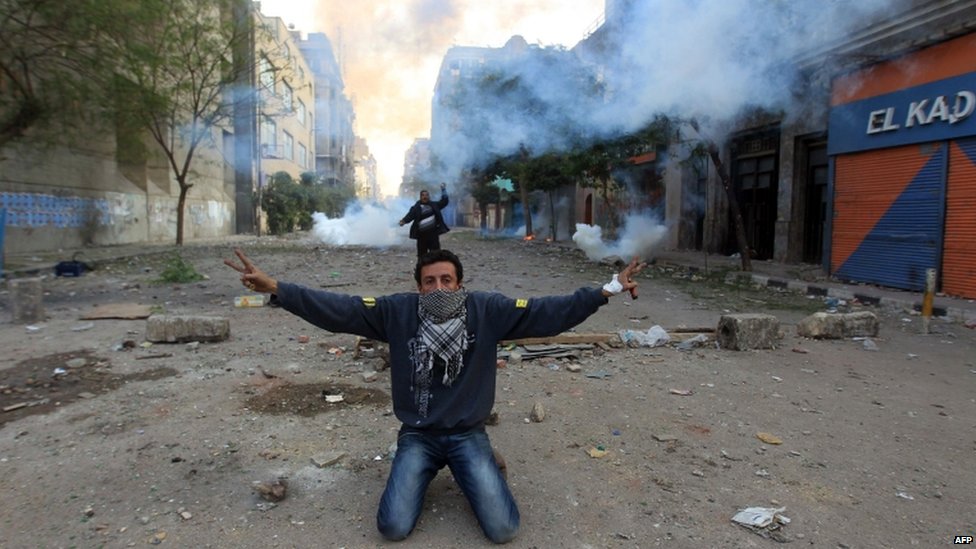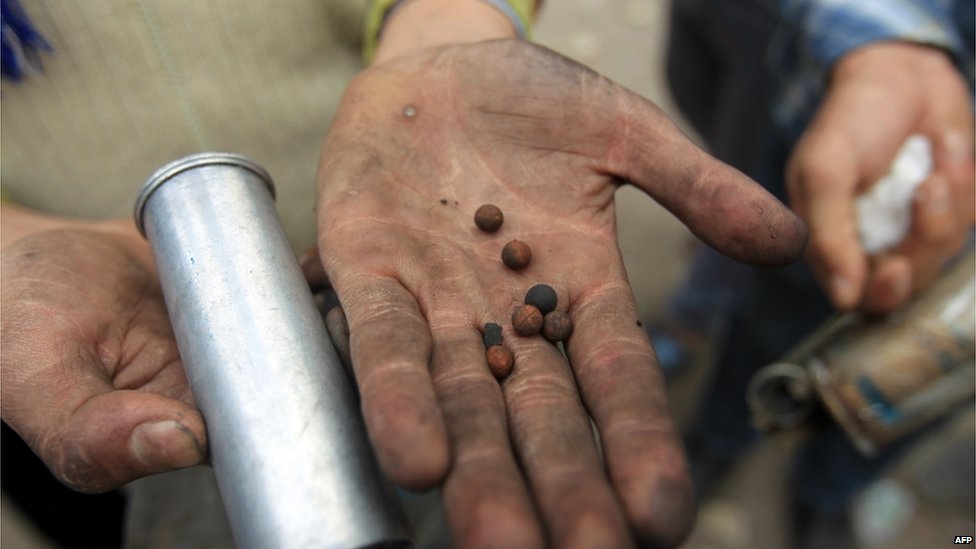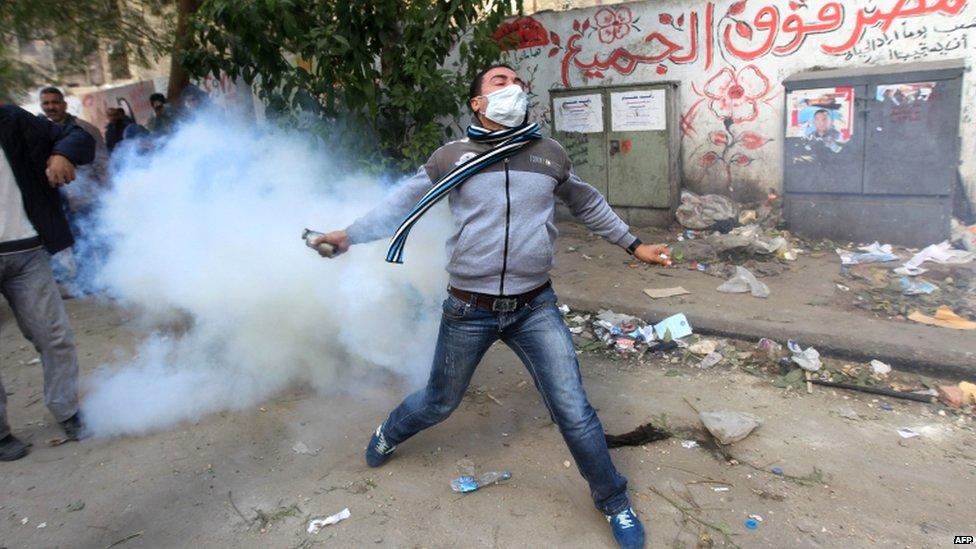BAK
JF-Expert Member
- Feb 11, 2007
- 124,789
- 288,011
19 November 2011 Last updated at 13:32 ET Egypt: 'Scores hurt' in Cairo clashes with police

Throngs of people remain in and around the square, and tensions are high
More than 210 people have been injured in clashes with police in Cairo's Tahrir Square, state TV reports.
Police fired rubber bullets and tear gas to prevent protesters staging a long-term sit-in following a huge demonstration on Friday against the military leadership.
Some protesters lobbed rocks and a police vehicle was set on fire.
The latest violence comes just over a week before parliamentary elections are scheduled to begin.
Police have now pulled back from Tahrir Square, which is filled with crowds of people, says the BBC's Yolande Knell in Cairo.
But she says they remain close by and tensions are high.
'Harsh beatings' The violence started after a small tent camp was dismantled earlier in the day.
About 200 demonstrators had camped out for the night following the rally that took place after Friday prayers.
The numbers swelled, reportedly after a call went out on social media for people to join the demonstration following the police assault.
One of them, Ali Abdel Aziz, said security forces beat up protesters to break up the sit-in.

The clashes began as police moved into the square to break up a sit-in
"They beat us harshly, they didn't care for either men or women," the 32-year-old accountancy professor told AFP news agency.
"The interior ministry must take responsibility. We have one demand, the military council must go," he said.
Black smoke rose over the square after protesters swarmed over an armoured police van, turned it over and set it alight, reports said.
There were multiple reports of injuries from rubber bullets, including to two journalists.
Egyptian state-run Channel 1 TV quoted the Ministry of Health as saying 213 people have been injured.
AFP quoted a security official as saying a number of arrests were made.
Friday's demonstration was the largest in the square for months.
Protesters were angry about a constitutional draft document that many believe would allow the military to retain too much power after a new civilian government is elected, our correspondent says.
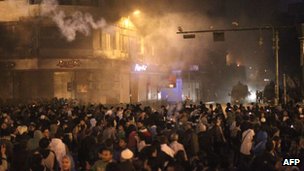
Throngs of people remain in and around the square, and tensions are high
More than 210 people have been injured in clashes with police in Cairo's Tahrir Square, state TV reports.
Police fired rubber bullets and tear gas to prevent protesters staging a long-term sit-in following a huge demonstration on Friday against the military leadership.
Some protesters lobbed rocks and a police vehicle was set on fire.
The latest violence comes just over a week before parliamentary elections are scheduled to begin.
Police have now pulled back from Tahrir Square, which is filled with crowds of people, says the BBC's Yolande Knell in Cairo.
But she says they remain close by and tensions are high.
'Harsh beatings' The violence started after a small tent camp was dismantled earlier in the day.
About 200 demonstrators had camped out for the night following the rally that took place after Friday prayers.
The numbers swelled, reportedly after a call went out on social media for people to join the demonstration following the police assault.
One of them, Ali Abdel Aziz, said security forces beat up protesters to break up the sit-in.
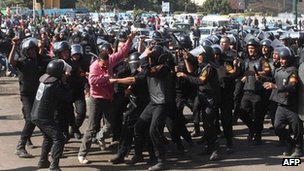
The clashes began as police moved into the square to break up a sit-in
"They beat us harshly, they didn't care for either men or women," the 32-year-old accountancy professor told AFP news agency.
"The interior ministry must take responsibility. We have one demand, the military council must go," he said.
Black smoke rose over the square after protesters swarmed over an armoured police van, turned it over and set it alight, reports said.
There were multiple reports of injuries from rubber bullets, including to two journalists.
Egyptian state-run Channel 1 TV quoted the Ministry of Health as saying 213 people have been injured.
AFP quoted a security official as saying a number of arrests were made.
Friday's demonstration was the largest in the square for months.
Protesters were angry about a constitutional draft document that many believe would allow the military to retain too much power after a new civilian government is elected, our correspondent says.
